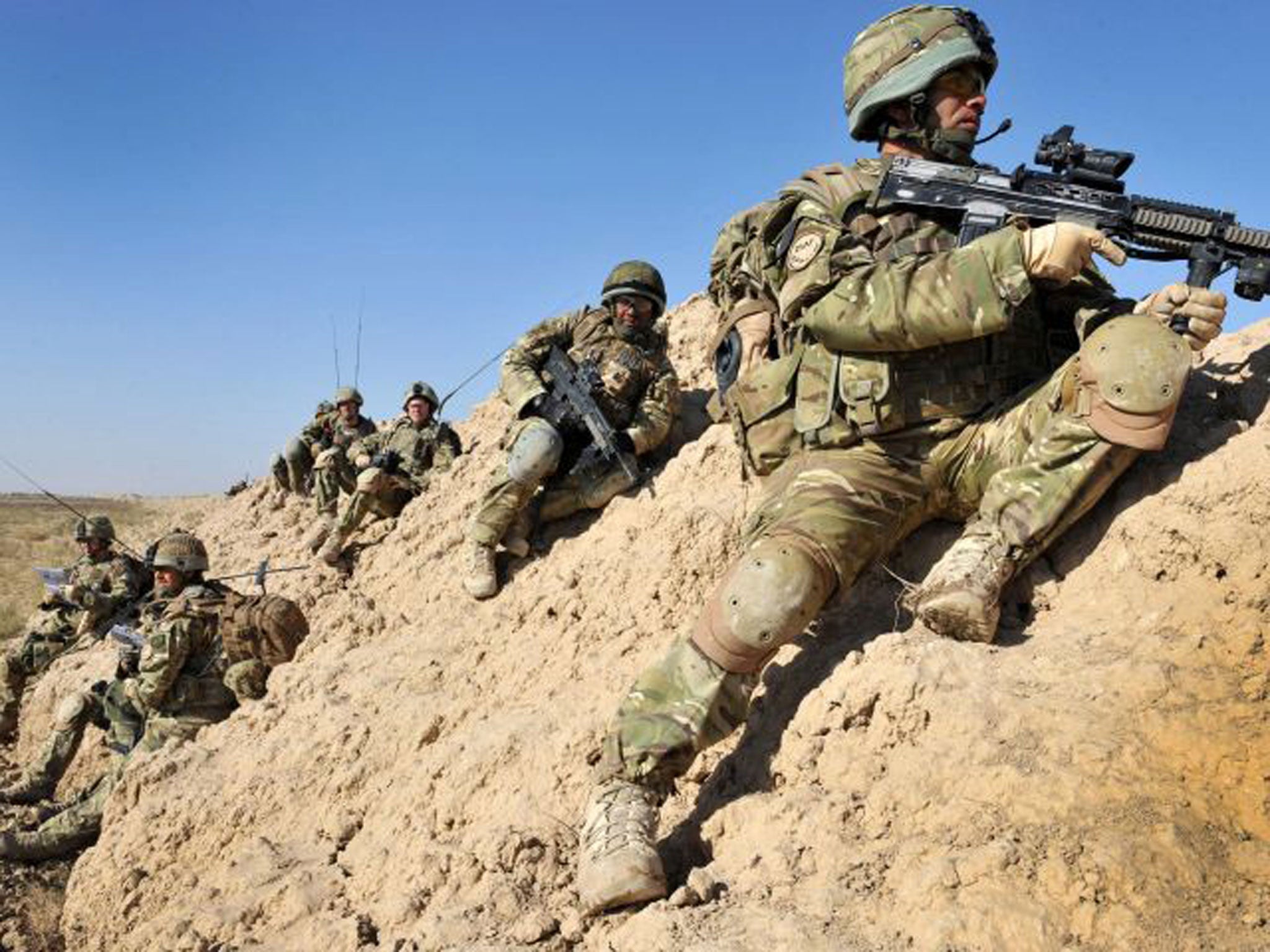UK troops face final sacrifice as tours of duty in Afghanistan to be extended by half in the perilous run-up to withdrawal

British troops are likely to have the length of their tours in Afghanistan extended by half in the crucial period leading to the end of combat operations, The Independent has learnt. The tours of duty served by key units may rise from six to nine months, under the plans to ensure that Afghanistan’s army and police are in a position to take over security duties.
As the UK enters the final stretch of its exit strategy from the 12-year-old war, the proposals are under consideration by ministers. A number of senior officers who have served in Afghanistan have pressed for the changes to be introduced, especially for those engaged in partnering local forces – a job where establishing trust and continuity is seen as essential. The move, however, is likely to prove controversial at a time when a large number of service personnel are facing redundancies due to Defence budget cuts.
At the same time the Coalition Government has embarked on a new policy of sending out training missions to states “at risk” from instability.
Around 300 British soldiers are being sent to West Africa, 40 of them to Mali where fighting continues after intervention by French forces. Troops will also be dispatched to Somalia, Libya and Lebanon.
There is also the danger from the so-called “green on blue” attacks in which men in Afghan uniforms have turned their guns on their erstwhile allies. The numbers of these types of attacks, however, have been reduced after fresh security measures were brought in.
Furthermore, the prospect of British troops having to spend a longer time in Afghanistan comes at a time of uncertainty and confusion on the ground with unexpected and arbitrary orders being issued by the Afghan President Hamid Karzai.
Today Mr Karzai said militias that have proved effective against the Taliban must be formally amalgamated into the Afghan army and police.
It is feared that this will negate the advantage they have in local knowledge of the enemy and swift action to counter them unencumbered by bureaucracy.
A few days previously, Mr Karzai had ordered US special forces out of Wardak province, a strategic area near the capital, Kabul, after allegations that the local forces they were working with had been involved in human rights abuse. The claims, however, are disputed and have not been verified. Nevertheless, senior commanders believe that the extension in the length of tours would be of great value at a time when insurgents are likely to take advantage of Western troops pulling out to be replaced, often, by relatively inexperienced Afghan forces.
Soldiers in direct combat roles will not be asked to do the extra three months. Senior officers also believe that extending the time would actually help the Army adjust to structural changes being carried out as it faces new types of combat. Major-General Jonathan Shaw, who had led British troops in Basra, said: “This plan has merit. In cases where one needs to work with local forces, being there for a longer period is certainly useful.
“It is a matter of risk management, one has to balance the gains against how safe it is and also, perhaps, how much stress may result from more time at a difficult place.”
The issue was raised in the past by the then-head of Helmand task force, Major-General Ed Davis.
Maj-Gen Davis, now Commandant General of the Royal Marines, pointed out that the “constant churn” of those mentoring Afghan forces meant that the working relationship was being strained.
His views have been echoed by some of his successors.
One officer who had served in Helmand and is now involved in planning, said: “The proposal is for a limited number of people in particular posts to be deployed for three months more.
“There may be a few quibbles about this, but it makes eminent sense in the timeline we are looking at to the end of combat mission.”
An MoD spokesperson said: “No decisions have been taken on the drawdown profile of the redeployment from Afghanistan. Our focus will remain on advising the ANSF as they continue to grow in capability and assume the lead in their own security. UK Forces will no longer be in a combat role by the end of 2014.”
Join our commenting forum
Join thought-provoking conversations, follow other Independent readers and see their replies
Comments
Bookmark popover
Removed from bookmarks